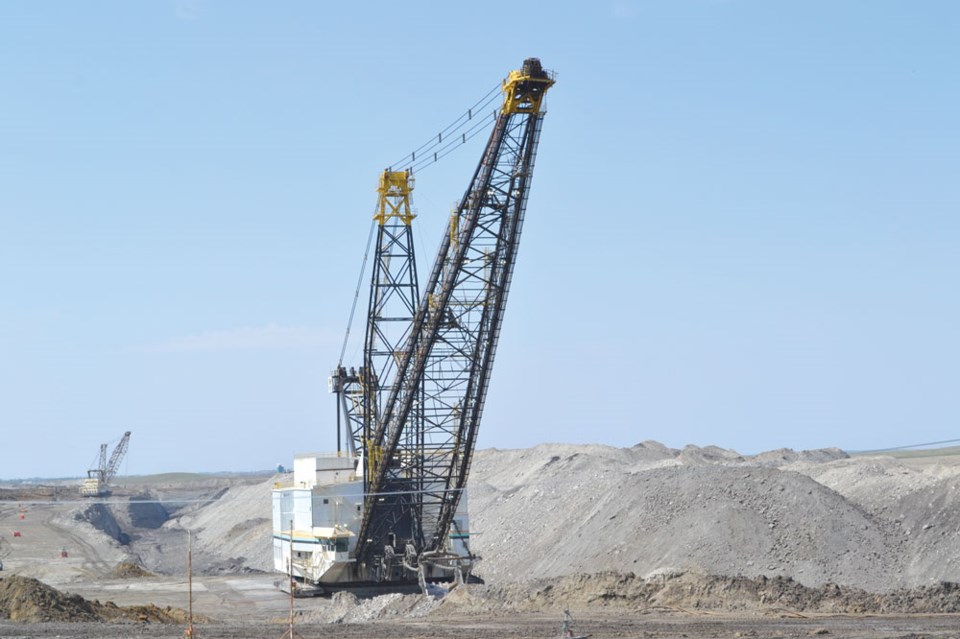The federal government has announced funding for three projects in the Estevan area through the Canada Coal Transition Initiative (CCTI), which will result in additional people С����Ƶ hired and funding for solar power training.
Amarjeet Sohi, Minister of Natural Resources, made the announcement Friday in Alberta. A total of five projects in Saskatchewan and four projects in Alberta received support.
The City of Estevan will receive $260,000 to develop a transition action plan that includes employment, retraining and municipal planning requirements.
Mayor Roy Ludwig said the city would use the money to hire an additional economic development person. It’s a two-year term position, and the $260,000 will cover wages and expenses.
“This person will take the pulse of the community and get a good idea of the needs and what would be a good fit, and then get moving on trying to get manufacturing, greenhouses and warehouse-type activity, because we’re so close to the border,” said Ludwig.
The city wants to mitigate the pending retirement of Units 4 and 5 at Boundary Dam as much as possible.
The new economic development person will answer to city manager Jeff Ward, but will also work with economic development co-ordinator Dwight (Fitz) Bramble.
Ludwig defended the need for a second person in economic development, saying the city needs to put a focus on that department.
“We’re looking at a larger manufacturing base that would employ more people, we’re looking at perhaps large greenhouse facilities that would employ more people,” said Ludwig.
Bramble is continuing to pursue leads, and looking at what he can bring to the community.
The city is also looking for an economic assessment to be completed. Coronach, which will also be affected by the coal phase-out, received funding to complete such an assessment.
“We’re looking at, with them paying for Coronach, maybe even the same company, same individuals, to come to Estevan and get hopefully this transition fund to pay for that,” said Ludwig.
The city has not heard back from the provincial government as of yet regarding the city’s request for $5 million in funding.��
Sunrise Community Futures Development Corporation in Estevan and Weyburn will receive $250,000 over two years to hire a regional economic development co-ordinator for the southeast region to complete an economic assessment.
The person, who has been hired and will start in July, will work within the borders of CF Sunrise, with a focus on Estevan during this transition period.
“We’re going to work with the communities and the business community specifically to provide support and resources and to do a bit of an assessment to see, really, what do we need to plan for as we move into this period of transitioning away from coal,” said Verna O’Neill, the general manager for CF Sunrise.
This person will be separate from the person the city hires, but O’Neill said their person will work in concert with the city’s hire.
CF Sunrise has hired Christina Birch of Redvers; she will start July 15. ��O’Neill said Birch has an excellent background in economic development.
“We’re looking at this regional economic development co-ordinator to assist us with, first, the assessment as to what are the regional needs of businesses, and then look at developing the supports required for those regional types of efforts to assist with business retention and then expansion if possible,” said O’Neill.
For the assessment, CF Sunrise will look for input from communities, and the business community specifically, so that it can work effectively with not only the region but the City of Estevan’s co-ordinator to develop projects.
She hopes this position can become a permanent one.
The С����Ƶeast College will receive $188,000 to establish a solar installation training program, and install a permanent and mobile solar training laboratory in Estevan.
Larry Heggs, the facilities manager for the college, said the federal government and the college will partner to build a 99-kilowatt solar project at the college site. It will offset the power consumption at the college.
He hopes it will be up and running by the middle of October, and the student and the curriculum part of it will be a little later than that.
“Shovels should be in the ground in the next couple of weeks,” said Heggs.
If people were to drive past the campus now, they likely wouldn’t notice anything different, but some internal things could begin this week.
Heggs believes the training component is very important to this project. The mobile lab can be taken to other communities.
“Anybody in the southeast region will be able to come out for training,” said Heggs.
The lab will have a functional solar power system. It will be a two-panel project, although what that looks like for kilowatts hasn’t been determine.
“It’s going to have inverters,” said Heggs. “We’re going to be able to produce power on it. One of the panels will be non-working and the other will be.
“What we envision is you’re going to be able to install and build one side, and see how that project works, and then the other side it will be trailer-mounted, and you’re going to see, if finished up the actual wiring, what you’d have working.”
These concepts are somewhat unique, he said, and the college is looking forward to meeting the need moving forward.
The federal government has committed $35 million over five years to the CCTI for skills development and economic diversification to support communities affected by the phase-out of coal-fired electricity, and to create worker transition centres.
The CCTI is a fund to support skills development and economic diversification activities to help workers and communities adapt to Canada's transition from coal mining and coal-fired power generation.
Announced as part of the federal budget in 2018, the CCTI is administered by Western Economic Diversification Canada and Atlantic Canada Opportunities Agency.
��




